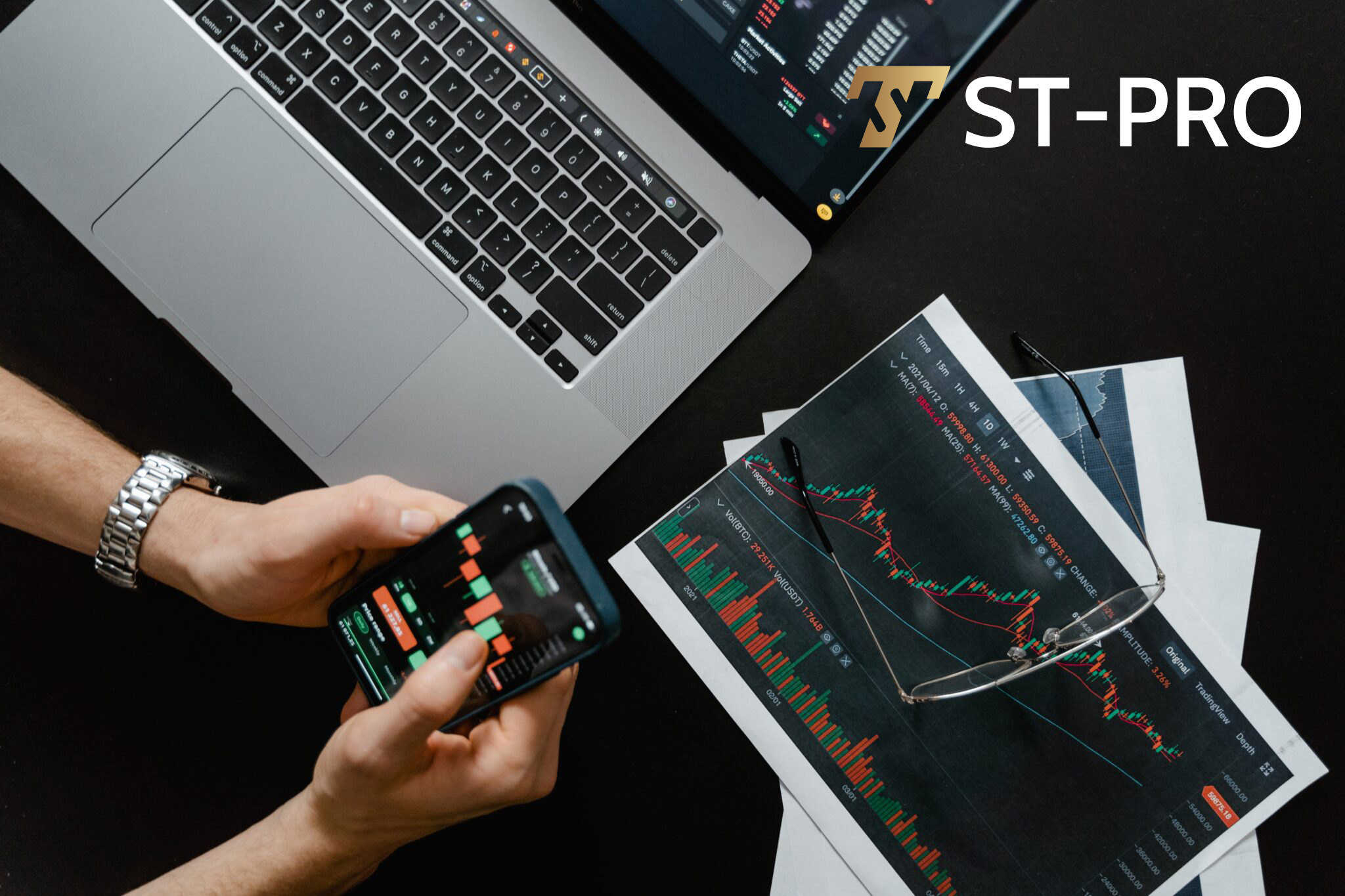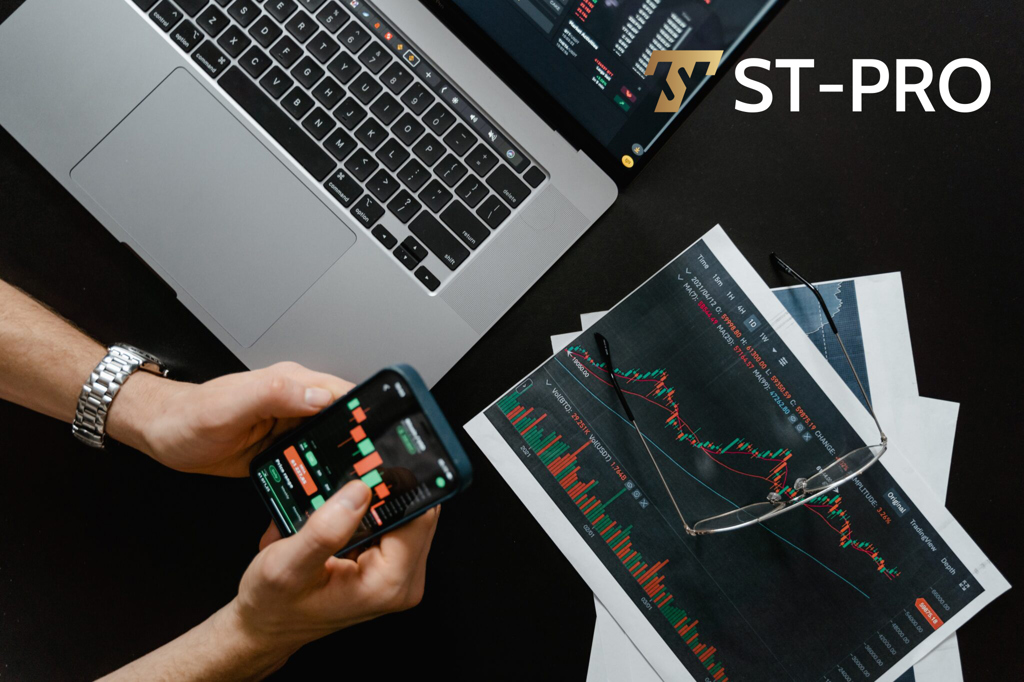The evolution of trading technologies as exemplified by the SAP TRADING Trading Platform
The world of trading has evolved significantly over the years, and with it, so have the technologies used to facilitate transactions. As markets become more complex and competitive, forex brokers need increasingly advanced software solutions to stay ahead of the competition. One such solution is the SAP TRADING Trading Platform, a comprehensive platform designed for brokers and exchanges that allows them to conduct transactions with different types of assets. This article will explore the evolution of this trading platform and its many advantages.
Account Types for Different Objectives
SAP TRADING recognizes that traders have unique goals and preferences. To cater to these diverse needs, the platform offers two main account types: spot exchange accounts and margin operations accounts. Each account type provides distinct advantages, allowing traders to customize their trading experience and optimize their strategies.
Spot exchange accounts, offered by SAP TRADING, are designed for traders who prefer real-time trading without the complexities of leverage or margin requirements. This account type is ideal for those who prioritize simplicity and want to focus on executing trades in a straightforward manner. With a spot exchange account, traders can engage in instant transactions, taking advantage of favorable market conditions without the need for additional collateral or borrowing funds.
On the other hand, SAP TRADING's margin operations accounts are tailored for traders who seek to leverage their positions and maximize their potential profits. With this account type, traders can access leverage and margin requirements, allowing them to amplify their trading power. Margin operations accounts enable traders to control larger positions than their account balance would typically allow. This feature can significantly enhance profit potential, but it also carries increased risk, requiring careful risk management and understanding of leverage dynamics.
Regardless of the chosen account type, SAP TRADING provides its users with a comprehensive selection of trading instruments. Traders can access a wide range of markets, including Forex, CFDs, stocks, futures, options, ETFs, indices, commodities, and cryptocurrencies. This broad array of instruments empowers traders to diversify their portfolios, explore different asset classes, and capitalize on various market opportunities.
Advanced Order Types
While basic market orders (buy/sell) and pending orders (limit/stop) have long been the cornerstone of trading, SAP TRADING takes it a step further by providing traders with a comprehensive suite of advanced order types. These advanced order types empower traders with the ability to set up trades with specific conditions, ensuring optimal execution and risk management.
One of the notable advanced order types supported by SAP TRADING is the Good Till Cancel (GTC) order. GTC orders remain active until they are either filled or cancelled by the trader. This order type is particularly useful for traders who wish to maintain a long-term trading strategy or those who want to enter the market at specific price levels. With GTC orders, traders can rest assured that their desired trade parameters will remain in place until their objectives are met or they decide to make a change.
Another powerful order type offered by SAP TRADING is the Immediate or Cancel (IOC) order. IOC orders require immediate execution and if the trade cannot be fully filled upon submission, the remaining portion will be automatically cancelled. This order type caters to traders who prioritize swift execution and are willing to forgo partial fills. IOC orders are especially valuable in fast-paced markets where every second counts, allowing traders to take advantage of fleeting opportunities without hesitation.
SAP TRADING also provides traders with the One Cancels the Other (OCO) order type. With OCO orders, traders can set up two separate orders simultaneously, with the understanding that if one order is executed, the other will be automatically cancelled. This order type is useful for managing complex trading strategies or implementing conditional trades. For instance, traders can set up an OCO order to simultaneously place a stop-loss order and a take-profit order. If the stop-loss order is triggered, the take-profit order will be cancelled, and vice versa. OCO orders provide traders with a versatile tool to effectively manage risk and capture profits based on predetermined market conditions.
The introduction of advanced order types on the SAP TRADING Trading Platform signifies the ongoing evolution of trading technologies. By catering to the diverse needs of traders, these order types empower them to execute trades with precision and agility, ultimately enhancing their overall trading experience. Whether it is the flexibility of GTC orders, the immediacy of IOC orders, or the conditional execution of OCO orders, SAP TRADING ensures that traders have access to a comprehensive suite of tools to optimize their trading strategies.

API Kit
SAP TRADING also provides an API kit which includes Web REST API, Sockets API, FIX API SFX and Manager API. These APIs allow developers to create custom applications that integrate with SAP TRADING’s platform in order to automate certain tasks or add additional features not available on the platform itself. This makes it easier for brokers and exchanges to customize their trading experience according to their needs.
Stock Operation Features
One of the standout features of SAP TRADING is its versatile module that allows users to configure stock operations based on corporate actions, such as dividends or splits. These corporate actions can have a profound impact on stock prices, potentially causing confusion and errors during trading. However, SAP TRADING's advanced functionality ensures that all trades are executed correctly, regardless of the changes in stock prices resulting from these corporate actions.
Dividends and stock splits are two common examples of corporate actions that can significantly influence a stock's value. Dividends are periodic payments made by a company to its shareholders, typically as a portion of its profits. On the other hand, stock splits involve dividing existing shares into multiple shares, effectively reducing their price per share. These events can lead to fluctuations in stock prices, making it challenging for traders to accurately execute their trades and manage risk.
SAP TRADING's module designed specifically for corporate actions tackles these challenges head-on. By allowing users to configure their stock operations based on upcoming dividends or splits, the platform empowers traders to make informed decisions and adapt their strategies accordingly. This flexibility enables them to seize opportunities presented by corporate actions while minimizing potential pitfalls.
Liquidity Aggregation Module
One of the primary challenges traders face is accessing deep liquidity pools at competitive prices, especially in highly volatile markets or during non-peak trading hours. SAP TRADING addresses this issue by offering state-of-the-art liquidity aggregation capabilities. Through its order matching engine, SAP TRADING intelligently consolidates liquidity from a variety of sources, including banks and ECNs, providing traders with unparalleled access to deep and diverse liquidity pools.
SAP TRADING's technical connector plays a pivotal role in its ability to connect directly with major liquidity providers. This secure and robust connection ensures seamless integration between the platform and liquidity sources, guaranteeing traders quick and reliable access to liquidity. By establishing direct connections, SAP TRADING bypasses intermediaries, reducing latency and minimizing the chances of disruptions, thereby enhancing trading efficiency and performance.
Also, SAP TRADING's liquidity aggregation capabilities go beyond just accessing liquidity; they also adapt to market conditions in real-time. Regardless of the time of day or prevailing market conditions, traders using SAP TRADING can be confident that they are always presented with competitive prices and ample liquidity.
SAP TRADING's liquidity aggregation capabilities provide an added layer of risk mitigation for traders. By aggregating liquidity from multiple sources, the platform reduces the reliance on any single provider, thereby minimizing the risk associated with disruptions or reduced liquidity from a specific source. Furthermore, the transparency inherent in SAP TRADING's liquidity aggregation process ensures that traders have access to real-time market data, enabling informed decision-making and accurate assessment of market conditions.
Final thoughts
The SAP TRADING Trading Platform has come a long way since its inception and continues evolving along with market demands in order to meet customer needs better than ever before.
tag: Awesome, Design, Photography, Themeforest, Magazine

Claudia Nelson Author
Anim tincidunt odio massa esse per. Nisl neque iaculis ad urna non. Metus vestibulum tortor occaecat dolor. Hendrerit euismod quam excepteur ut. Mollis ante nulla nibh ex...
YOU MAY ALSO LIKE
LEAVE A COMMENT
Your email address will not be published.








